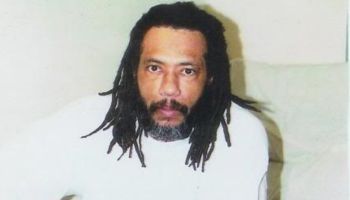Pioneering novelist Harriet E. Wilson (pictured) became the first African-American novelist of either gender to publish a book in North America on this date in 1859. Although Ms. Wilson’s book, “Our Nig: Sketches From The Life Of A Free Black,” was initially released anonymously and did not catch on with readers, the book would finally get national attention for its historic feat 123 years later.
SEE ALSO: White Mob Stops School Desegregation In Texas On This Day In 1956
“Our Nig” was an autobiographical novel, focused on Wilson’s assessment that indentured servants in the North still dealt with the specter of racism and slavery. Born a free person, Wilson was orphaned and became an indentured servant until she was 18 years of age. The novel’s protagonist, “Frado,” was determined by scholars of the text to be patterned after Wilson. Frado was of mixed parentage – Irish and Black, just like Wilson.
An excerpt from “Our Nig”:
IN offering to the public the following pages, the writer confesses her inability to minister to the refined and cultivated, the pleasure supplied by abler pens. It is not for such these crude narrations appear. Deserted by kindred, disabled by failing health, I am forced to some experiment which shall aid me in maintaining myself and child without extinguishing this feeble life. I would not from these motives even palliate slavery at the South, by disclosures of its appurtenances North. My mistress was wholly imbued with southern principles. I do not pretend to divulge every transaction in my own life, which the unprejudiced would declare unfavorable in comparison with treatment of legal bondmen; I have purposely omitted what would most provoke shame in our good anti-slavery friends at home.
My humble position and frank confession of errors will, I hope, shield me from severe criticism. Indeed, defects are so apparent it requires no skilful hand to expose them.
I sincerely appeal to my colored brethren universally for patronage, hoping they will not condemn this attempt of their sister to be erudite, but rally around me a faithful band of supporters and defenders.
H. E. W.
At the time of the book’s release, abolitionists in the north were critical of the book because it cast a view of indentured servitude as being nothing more than a kind way to explain slavery.
The book was also considered only for a Black audience, so White readers never flocked to the novel. Falling out of print and nearly outside the annals of history, Harvard professor Henry Louis Gates, Jr. discovered “Our Nig” and later confirmed that it was the first novel to be published in the United States by an African American.
Wilson’s life did not end on the best of terms; she married twice and lost her only son due to an illness when he was just 7 years old. She would marry again, becoming a lecturer in the Spiritualist movement. Wilson was noted for speaking candidly about her life and struggles, sometimes with humorous results. Largely estranged from her husband, Wilson would pass away in June of 1900 after an active life. There was no evidence that she wrote again after the publishing of the book.
Wilson’s achievement as the first African-American novelist should be thought of as noteworthy, considering the injustices and oppression she faced during her time. Even with the odds against her, Harriet E. Wilson still found a way to have her story heard.
Read the full text of “Our Nig: Sketches From The Life Of A Free Black”
SEE ALSO: FLOTUS Gives Firm Message To Students At Whitney Young Screening
















